Latest News
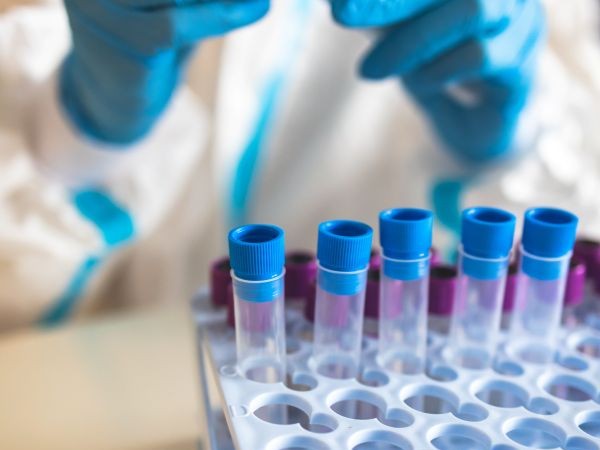
In a molecular diagnostic laboratory, having a system for tracking specimens, or assays, is integral to workflow efficiency and accuracy. Although streamlining this process often proves to be challenging, members from the Division of Genomic Diagnostics and Bioinformatics in the UAB Department of Pathology have developed the In-house Lab Assay Database (ILAD) to customize and expedite specimen tracking.

Neuroscience is actively researching immunotherapies and neuroprotective compounds that could eventually help mitigate the impact of chronic stress on inflammatory states. However, prevention remains the primary focus for now.
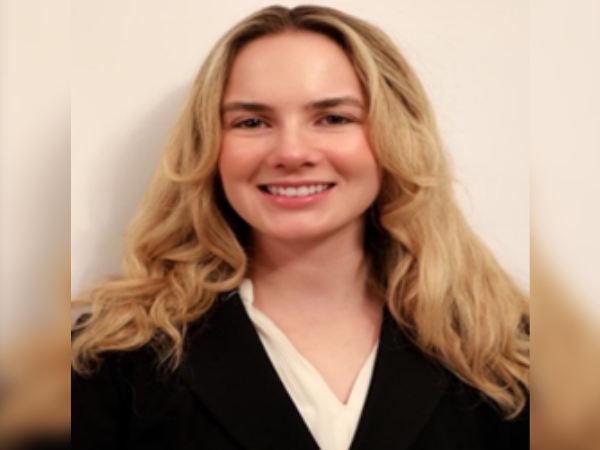
Alyssa Leibengood, M.D., PGY1, joined the UAB Department of Neurology in June 2024. A native of Overland Park, Kansas, Leibengood completed both her undergraduate education and medical school at the University of Kansas.
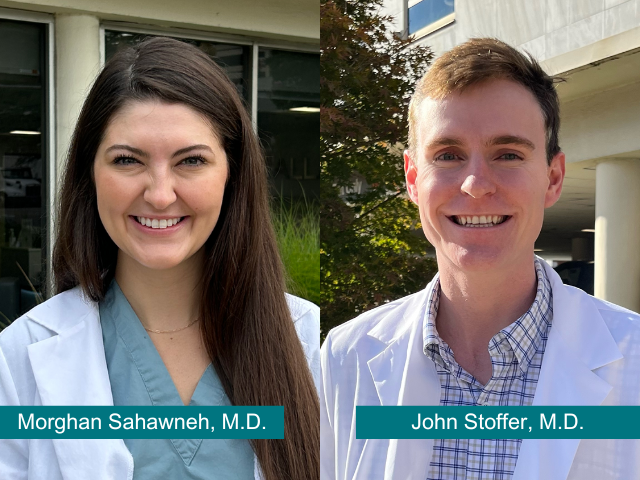
Morghan Sahawneh, M.D., and John Stoffer, M.D., have been chosen by their peers to lead the UAB Ophthalmology Residency Program in their final year of training.
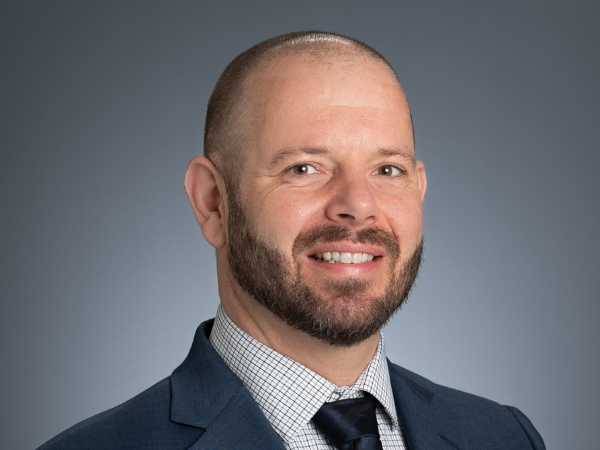
The UAB Department of Ophthalmology and Visual Sciences welcomed Oliver Gramlich, Ph.D., as an associate professor in April 2025, further strengthening the department’s growing research enterprise.
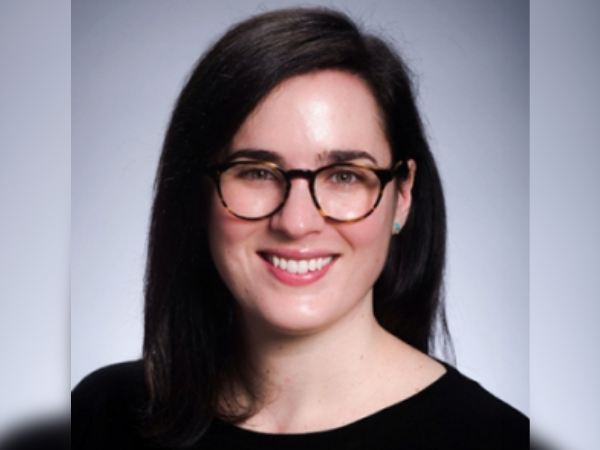
Rebekah Weil, M.D., has been named the associate division director for medical education for the Division of General Internal Medicine and Population Science.

UAB Medicine will host Maternal Health for All 2025: Maternal Health in Focus, an event focused on maternal health and infant mortality, on April 16, 2025, at 5 p.m. at Sidewalk Film Center & Cinema.
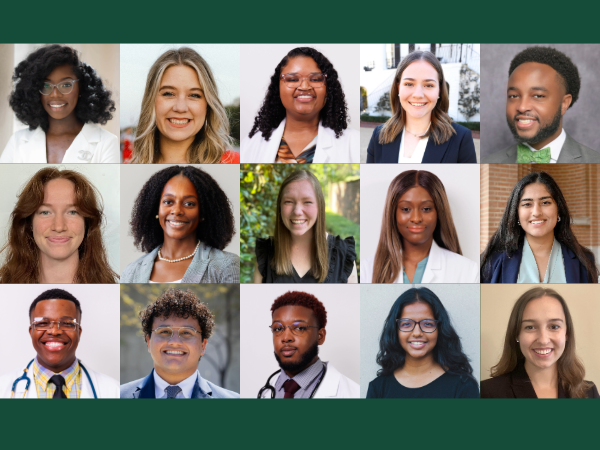
The Office of Service Learning has announced the largest cohort of Health Equity Scholars (HES) in the program's history, with 15 medical students embarking on this transformative opportunity. The Health Equity Scholars Program aims to cultivate future physician leaders by equipping them with the skills needed to provide quality health care to communities with less resources.
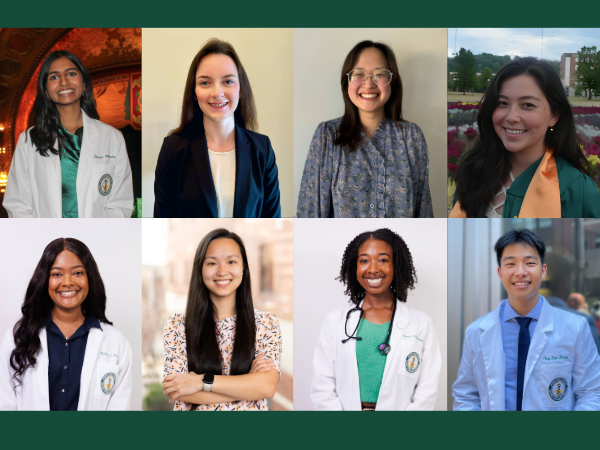
Eight students from the UAB Heersink School of Medicine have been selected for the 2025-2026 class of Alabama Albert Schweitzer Fellows. These distinguished students are part of a broader cohort chosen from institutions across the state. Over the upcoming year, these fellows will dedicate themselves to implementing service projects aimed at addressing the social determinants that impact health outcomes in underserved communities.
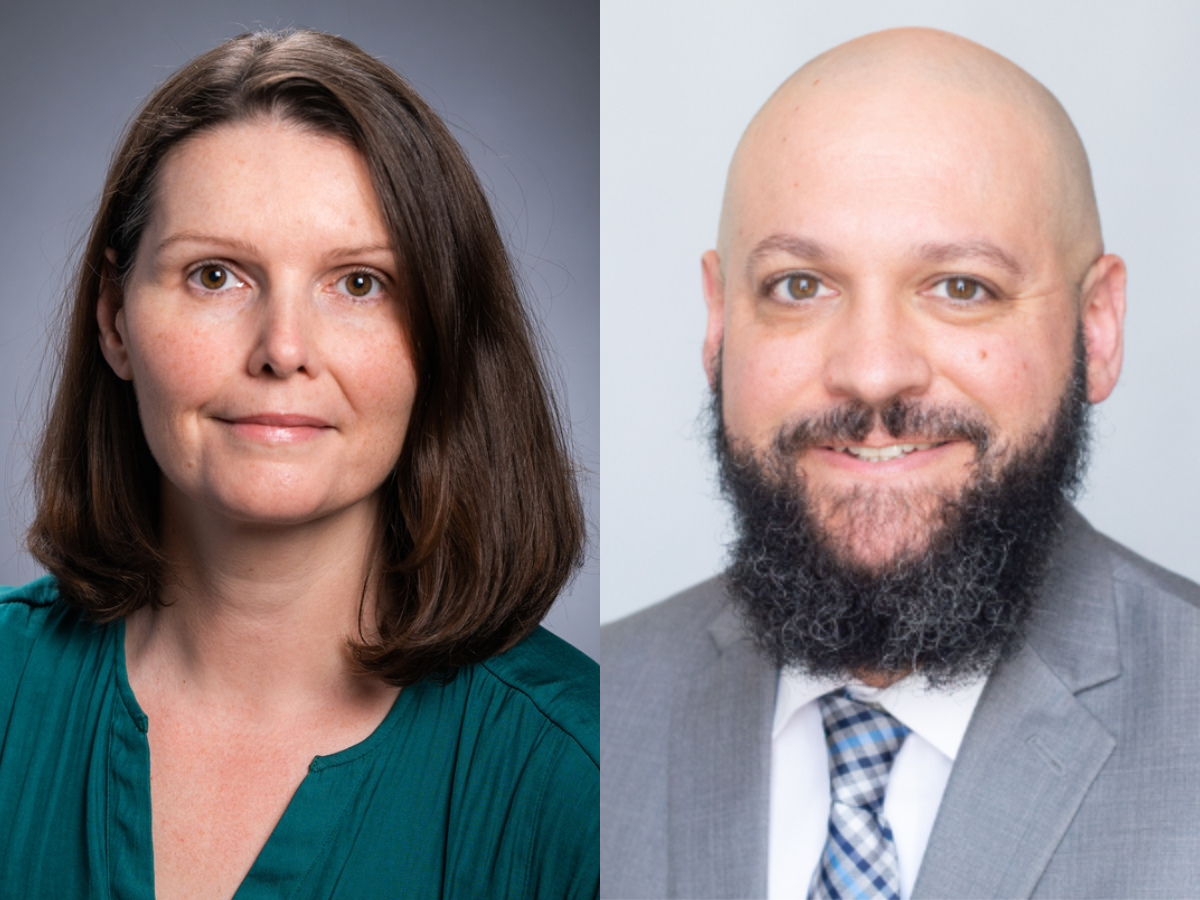
Research is an essential part of health care. Every year, new discoveries are made that allow us to better understand the human body. Many of these discoveries would not be possible without enrolling patients as research participants. This is where the UAB Institutional Review Board (IRB) comes in. By protecting the rights and welfare of human subjects, UAB is able to continue learning through conducting human subjects research while also ensuring the health and safety of the participants.
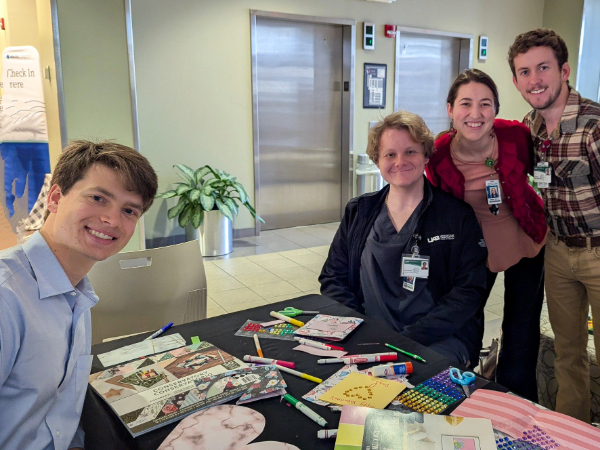
The Alabama Statewide Area Health Education Centers (AHEC) Network is working across the state to recruit, train, and retain a workforce of health professionals committed to serving communities with insufficient access to care.

The Department of Psychiatry and Behavioral Neurobiology will present its 2025 Annual Research Symposium on April 22 at 9 a.m. featuring guest speaker Katie Witkiewitz, Ph.D., Distinguished Professor in the Department of Psychology at the University of New Mexico.

The Department of Radiology is undergoing a leadership transition in the Division of Interventional Radiology (IR). Aliaksei Salei, M.D., director of IR operations, director of quality of IR, and associate professor in the Division of IR, will be stepping into the role of interim division director as we conduct a national search for a permanent division director. This change is effective, April 15, 2025.
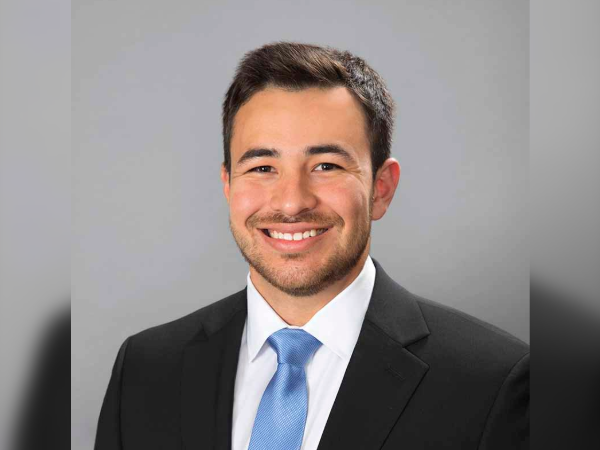
Taylor Spiletic, M.D., PGY1, joined the UAB Department of Psychiatry and Behavioral Neurobiology in June 2024. A native of Daytona Beach, Florida, Spiletic completed his undergraduate degree at The University of Florida and medical degree at Florida State University College of Medicine.

The Department of Family and Community Medicine will be welcoming 33 future residents — including eight Heersink School of Medicine students — who matched into the Cahaba-UAB Family Medicine Residency, UAB Selma Family Medicine Residency, and newly branded UAB-St. Vincent's East Family Medicine Residency programs.

The Heersink School of Medicine celebrated Match Day on Friday, March 21, 2025, at the Alys Stephens Center. This pivotal event marks the culmination of years of hard work and dedication for medical students as they discover where they will spend the next phase of their medical training.

The UAB Department of Obstetrics and Gynecology is proud to announce the appointment of Shweta Patel, M.D., as the new associate division director for the Division of Women’s Reproductive Healthcare (WRH).

Soroush Rais-Bahrami, M.D., FACS, will be traveling to Japan to participate in the American Urological Association/Japanese Urological Association (AUA/JUA) Exchange Program from April 1 through April 20. Rais-Bahrami will spend the majority of the three-week program in Kyoto before traveling to Fukuoka for the JUA Annual Meeting on April 17-19.

The Heersink School of Medicine offers various programs designed to spur innovation and enhance leadership, communication, and networking skills in academic medicine. Join us this April for three upcoming events where faculty, staff, students, and trainees can explore key topics such as mentoring, career development, interdisciplinary collaboration, and work-life integration.

Dean Stovall, MHA, CPAR, was recently announced as the new Executive Administrator for the UAB Department of Otolaryngology.
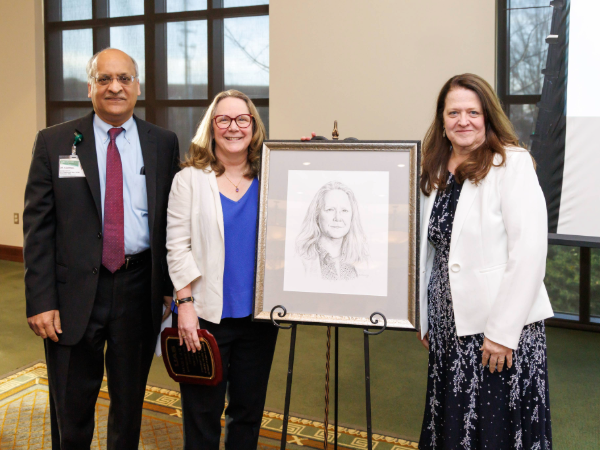
Fran Lund, Ph.D., director of the UAB Heersink School of Medicine Immunology Institute, professor and Endowed Chair in Immunology in the Department of Microbiology, and senior scientist at the UAB O’Neal Comprehensive Cancer Center, was honored with the 2025 Distinguished Faculty Lecturer Award on Tuesday, March 18 at the UAB Alumni House.
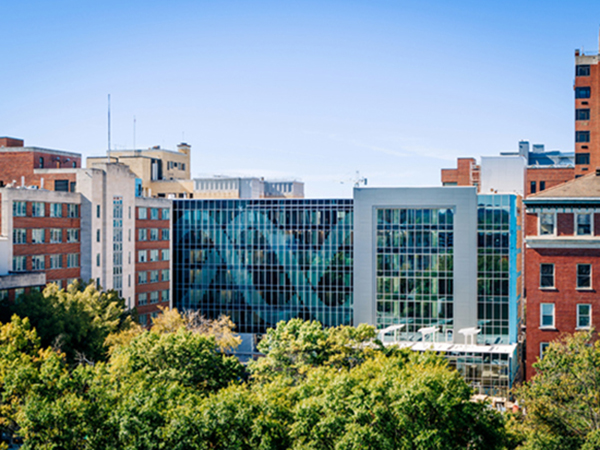
Each year, the Annual Translational and Transformative Informatics Symposium (ATTIS), hosted by the Department of Biomedical Informatics and Data Sciences, brings together faculty, postdoctoral fellows, and trainees from across the country to share updates and insights into bioinformatics research.

Nine faculty members recently graduated from UAB Medicine’s LEading Advancing Developing (LEAD) spring 2025 program. The program, presented by the UAB Medicine Leadership Development Office, recognized its graduates at a ceremony on March 13, 2025.

The Marnix E. Heersink Institute for Biomedical Innovation hosted a Grand Rounds presentation titled "Using NLP Approaches in Medical Informatics – A Path Towards Developing Gen AI Applications," featuring Ashish Gupta, Ph.D., Globe Life Professor of Business Analytics and Ph.D. Program Coordinator in the Department of Business Analytics & Information Systems at Auburn University’s Harbert College of Business, on Tuesday, Feb. 25, 2025.

The UAB Department of Otolaryngology is excited to welcome our newest class of residents in the 2025 Match.

The UAB Department of Neurology is proud to welcome our newest class of residents in the 2025 Match.

The UAB Department of Psychiatry and Behavioral Neurobiology is excited to welcome our newest class of residents in the 2025 Match.

Justin Turner, M.D., Ph.D., professor and John S. Odess Endowed Chair, delivered the UAB Department of Otolaryngology’s inaugural State of the Department address on Tuesday, March 11, 2025.

UAB is adding another tool to its IT toolbox. Faculty, researchers, and trainees will have access to BioRender Premium, effective immediately. This user-friendly, web-based tool helps users create high quality scientific figures quickly and efficiently.

On Wednesday, March 19, Anupam Agarwal, M.D., senior vice president for Medicine and dean of UAB Marnix E. Heersink School of Medicine, and Dawn Bulgarella, MSHA, CPA, chief executive officer of UAB Health System, jointly unveiled a unified brand and logo system that brings together the institutions’ research, education, and clinical care efforts under one brand — UAB Medicine. This is the first time the academic and clinical enterprises will fully share the same logo.